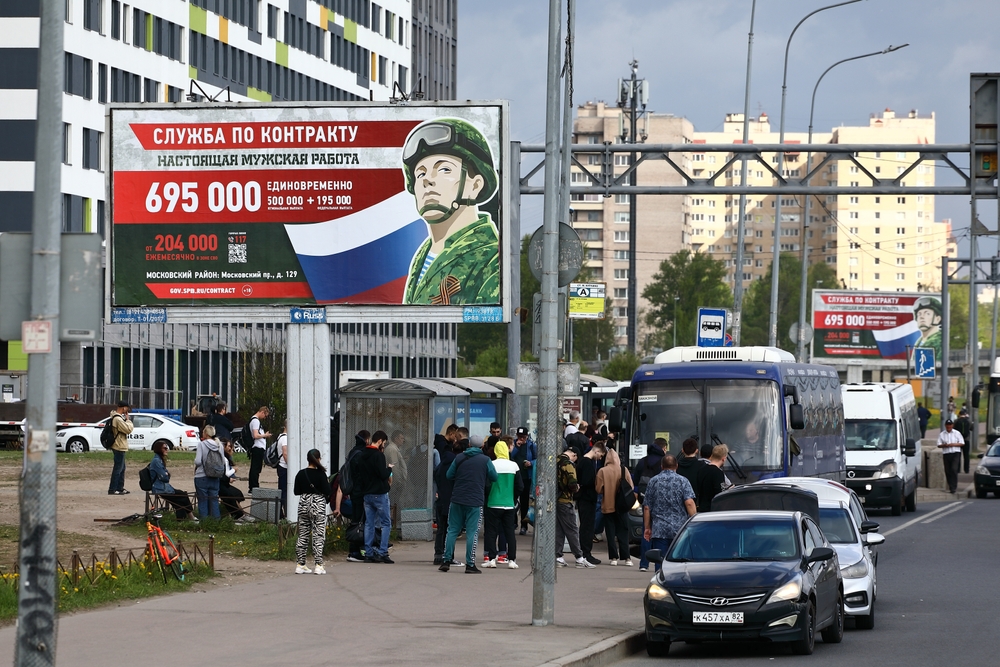War as Social Elevator: The Socioeconomic Impact of Russian Military Keynesianism

In order to finance its war effort, the Russian state has spent substantial sums of money and implemented a form of “military Keynesianism” that is transforming society at both the socioeconomic and cultural levels. This has partially rebalanced the wide disparities in wealth, levels of consumption, and social prestige in Russian society by granting significant financial and symbolic advantages to peripheral Russia, which has long been overlooked by the central government.

However, Russian military Keynesianism has had negative impacts, and three years after the start of the war, the socioeconomic benefits it has brought to the poorest strata of Russian society seem to have reached their limits. Regardless of the country’s economic future and political developments, the changes brought about by the war will leave their mark on Russian society for years to come.
The impact of the war in Ukraine on Russian society is still not well understood in the West, where debate focuses mainly on Russian public opinion and its apparent support for the war in Ukraine. While Russian society is resilient and has adapted to the uncertainties of the war, mixing cautious optimism about the present with deep anxiety about the future, less is known about the socioeconomic impact of the war on Russian society. In order to finance the war effort, the Russian state has spent substantial sums of money and implemented a form of “military Keynesianism”, i.e., a massive redistribution of state income to industries linked to the war effort on the one hand, and significant financial support for the hundreds of thousands of men at the front on the other. This military Keynesianism has transformed society at both the socioeconomic and cultural levels. It has partially rebalanced the wide disparities in wealth, levels of consumption, and social prestige in Russian society by granting substantial financial and symbolic advantages to peripheral Russia, which has long been overlooked by the central government.
Russian military Keynesianism has had negative impacts, however: the depletion of public resources, persistent inflation, civilian sectors struggling to cope with the priority given to military industries by the state, and growing dependence on China. What is the socioeconomic and cultural impact of this military Keynesianism? Which Russian regions are winning and losing in this war economy? What impact would a mass return of veterans to Russia have on Russian society?
Marlène Laruelle is professor of international affairs and political science at the Institute for European, Russian, and Eurasian Studies (IERES) at the George Washington University (Washington, DC), and director of the Illiberalism Studies Program. She was an associate research fellow at Ifri’s Russia/Eurasia Center between 2009 and 2024. Her most recent publication is Ideology and Meaning-Making under the Putin Regime (Stanford University Press, 2025).

Available in:
Themes and regions
ISBN / ISSN
Share
Download the full analysis
This page contains only a summary of our work. If you would like to have access to all the information from our research on the subject, you can download the full version in PDF format.
War as Social Elevator: The Socioeconomic Impact of Russian Military Keynesianism
Related centers and programs
Discover our other research centers and programsFind out more
Discover all our analysesRussia, the Palestinians and Gaza: Adjustments after October 7th
The Soviet Union (USSR), and subsequently the Russian Federation as its internationally recognized legal successor, has consistently sought to play a visible role in efforts to resolve the Israeli-Palestinian conflict.
Deathonomics: The Social, Political, and Economic Costs of War in Russia
The report attempts to outline and examine a truly new phenomenon in Russian society, dubbed “deathonomics”—the making of a mercenary army against the backdrop of the Kremlin’s war in Ukraine, eventually replacing both the Soviet (conscript) and early new Russian (contract) armies. It notes that, by the end of 2023, this trend had turned the military service into one of the highest-paying professions in the country, something not seen in Russia on such a scale since the late 17th century.
Russia's Asia Strategy: Bolstering the Eagle's Eastern Wing
Among Russia’s strategic priorities, Asia traditionally played a secondary role compared to the West. In the mid-1990s, then Foreign Minister Yevgeny Primakov initiated a rapprochement with China and India. Then, in 2014, deteriorating relations between Russia and the West prompted Moscow to begin its “great pivot to the East”.
Kazakhstan After the Double Shock of 2022: Political, Economic and Military Consequences
The year 2022 represented a dual shock for Kazakhstan. In January, the country faced its most severe political crisis since independence, followed in February by Russia’s full-scale invasion of Ukraine, which cast uncertainty over the borders of post-Soviet states. These consecutive crises profoundly shaped Kazakhstan’s domestic and foreign policy.












